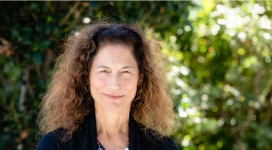Four Chinese Bishops were unable to attend the Synod of Rome, the Oct. 2-23 meeting that gathered the world's bishops, but sent a message in their absence that expressed their hope for future relations between the Vatican and China, a news agency reported.
Bishop Luke Li Jingfeng of Fengxiang wrote the message on behalf of the four bishops, thanking Pope Benedict XVI for his invitation, according to Zenit News Agency.
It was read aloud on Tuesday by Cardinal Angelo Sodano, the Vatican’s secretary of state, to the Bishops attending the Synod.
Rev. John Bartunek, a spokesman for the Synod, told the Associated Press that the message was written in Latin, and briefly said, the bishops were sorry that they could not attend, but hoped that the Vatican and China could re-establish diplomatic relations.
During the Synod, AP said that Bishop Joseph Zen, who is optimistic that the Vatican and China will improve its relations, told his fellow bishops that the majority of Chinese bishops who had been approved by the government are now approved by Rome.
The Pontiff has been trying to unify the two churches, and the invitation to the four bishops— Archbishop of Xian Anthony Li Duan, Bishop of Shanghai Aloysius Jin Luxian, Bishop of Fengxiang Luke Li Jingfeng, who are recognized by the government, and Bishop of Qiqihar Joseph Wei Jingyi—was seen as a part of the plan.
But, the government-approved Catholic Patriotic Association and the Chinese Catholic Bishops College said that the invitation showed "no respect," because Beijing had told the Vatican that they could not attend because of old age and poor health.
China severed all ties with the Vatican after 1951 when the Communist Party took control of the Roman Catholic churches. China allows Catholics to worship in officially recognized government churches, which recognizes the pope as a spiritual leader but appoints their own priests and bishops.
Because of this, millions of Chinese have chosen to worship in underground or unofficial churches, where they can stay loyal to the Vatican doctrines.
Meanwhile, on Wed, Cardinal Paul He Zeqing in one of the official churches was ordained in front of 81 priests and 1000 members as the Bishop of Wanxian, a city in Sichuan province in south-central China, the Vatican-affiliated AsiaNews reported.
He is the third bishop to be approved this year, chosen by the Holy See and then approved by the government.
The Associated Press asked Bishop Zen on Friday how the process of naming bishops works now.
"As far as I know, first comes the appointment by the pope, then the local bishop tries to have this candidate admitted, and then the government has the choice to ordain the bishop. These are the facts," saying that this process has been active for some time but has not been announced, he said according to AP.
Zen added, "I hope the government draws conclusions on the facts," according to AP. "The Holy See is anxious to start a dialogue, and "Beijing didn't show any interest, but now it seems that something is going to move."
The new Bishop of Wanxian, who is only 37 years old, told AsiaNews that he is keeping track of the Synod and praying for the four bishops who were unable to attend.
Cardinal Walter Kasper, a Vatican official told reporters Tuesday that the invitation was a "trial balloon," which is a test, saying that even though they were unable to attend, there was something that was still gained from the invitation, AP reported him as saying. "They knew that we had not forgotten them."





![Saving Gen Z’s Faith: Steve Richardson’s Bold Call to a New Generation of Missionaries [Exclusive Interview]](https://www.gospelherald.com/media/cache/thumbnail/7/21/72196sp_273w_150h_1x_1y.jpg)

